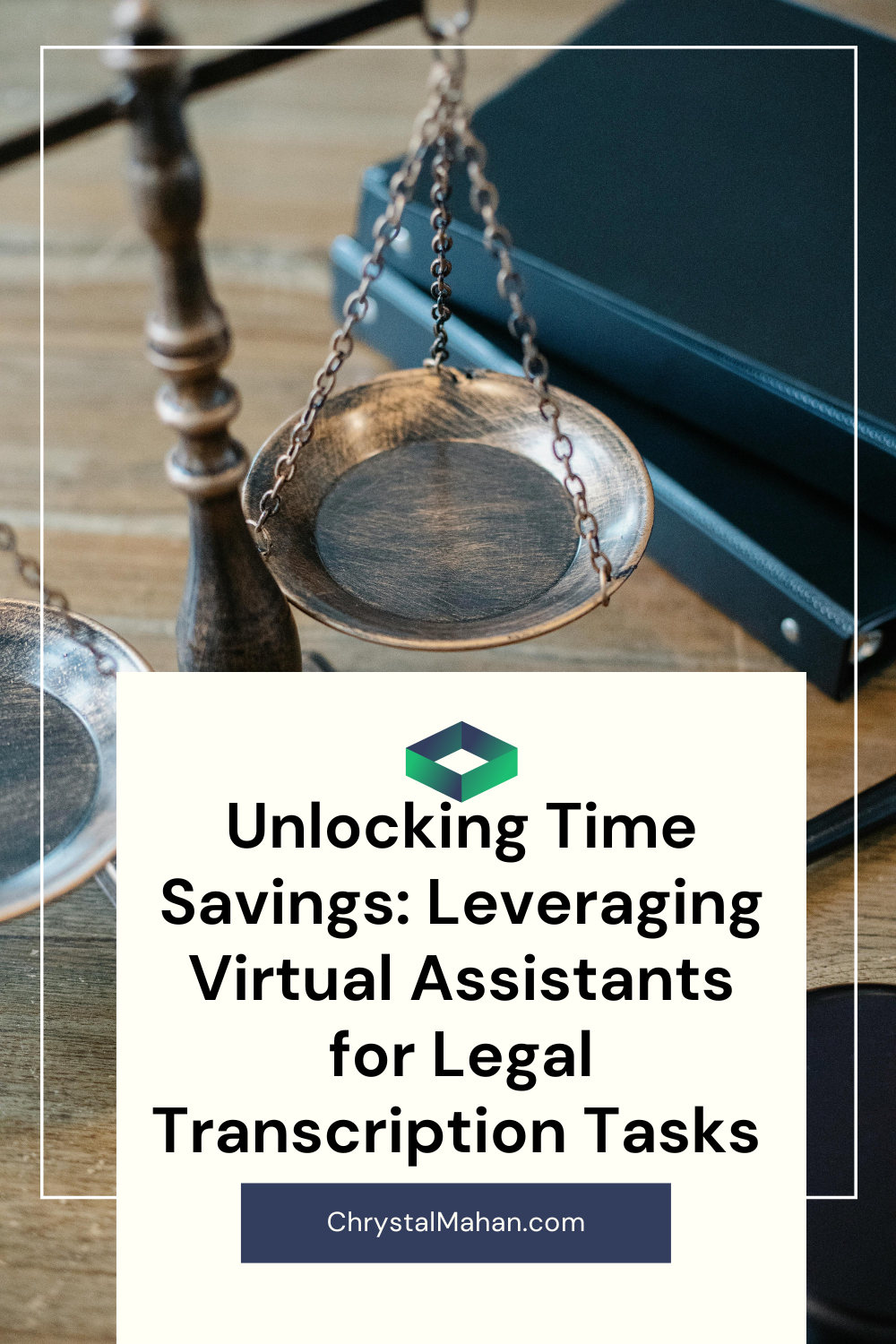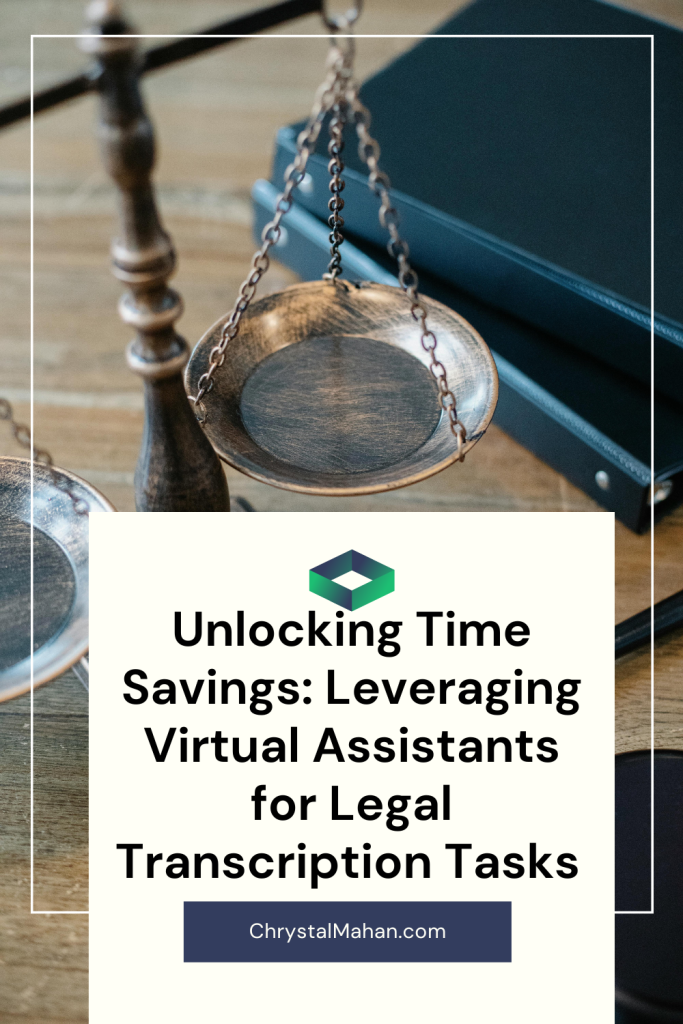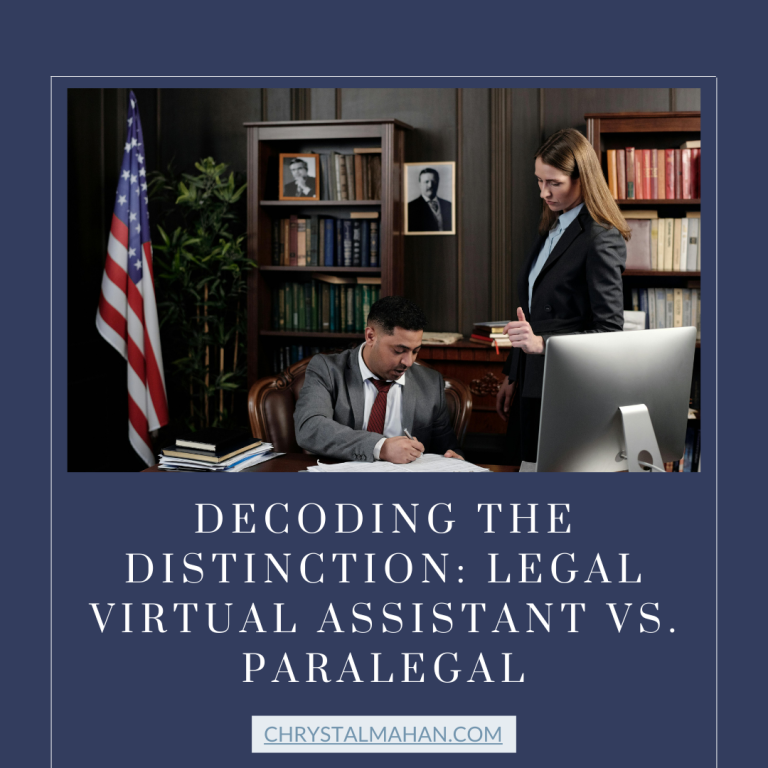Unlocking Time Savings: Leveraging Virtual Assistants for Legal Transcription Tasks


In the fast-paced world of legal work, time is an invaluable commodity. Every minute spent on administrative tasks is a minute taken away from providing quality legal services to clients. Legal professionals often find themselves bogged down by the time-consuming process of transcribing audio recordings, whether it’s from client meetings, court proceedings, or interviews.
However, in today’s digital age, there’s a solution that’s revolutionizing the way legal transcription tasks are handled: virtual assistants. These virtual assistants, equipped with advanced transcription tools and skills, offer a cost-effective and efficient alternative to traditional transcription methods. By leveraging virtual assistants for legal transcription tasks, law firms, and legal professionals can unlock significant time savings, allowing them to focus on what matters most – serving their clients.
The Time-Consuming Nature of Legal Transcription
Legal transcription is a critical aspect of legal work. It involves converting spoken words from audio recordings into written documents. These transcriptions serve as essential records for legal proceedings, client meetings, depositions, and more. However, manually transcribing audio recordings can be painstakingly slow and labor-intensive.
Legal professionals often face numerous challenges when handling transcription tasks in-house:
Time-Intensive Process: Transcribing audio recordings can be incredibly time-consuming, requiring hours of focused attention to capture every word spoken accurately.
Resource Constraints: Many law firms lack the necessary resources, such as dedicated transcription staff or advanced transcription software, to efficiently handle transcription tasks in-house.
Costs and Overheads: Hiring dedicated transcriptionists or investing in transcription software can incur significant costs and overheads for law firms, especially smaller practices or solo practitioners.
Accuracy and Quality: Ensuring the accuracy and quality of transcriptions is paramount in the legal field. Errors or inaccuracies in transcriptions can have serious implications for legal proceedings and client communications.
Given these challenges, legal professionals are increasingly turning to virtual assistants as a solution to streamline their transcription workflows and unlock valuable time savings.
Leveraging Virtual Assistants for Legal Transcription
Virtual assistants, often powered by advanced artificial intelligence (AI) and machine learning technologies, offer a range of benefits for legal transcription tasks:
Efficiency and Speed: Virtual assistants equipped with AI-driven transcription software can transcribe audio recordings at a fraction of the time it takes to do so manually. These tools utilize advanced speech recognition algorithms to convert spoken words into text quickly and efficiently accurately.
Cost-Effectiveness: Outsourcing transcription tasks to virtual assistants can be a cost-effective alternative to hiring dedicated transcription staff or investing in expensive transcription software. Virtual assistants often operate on a pay-per-use or subscription-based model, allowing law firms to scale their transcription needs according to demand.
Scalability: Virtual assistants offer scalability, allowing law firms to handle transcription tasks of varying volumes without the need for additional infrastructure or resources. Whether transcribing a single client meeting or processing large volumes of deposition recordings, virtual assistants can adapt to meet the firm’s needs.
Accuracy and Quality Assurance: Advanced transcription software virtual assistants use continually improves accuracy and reliability. These tools can distinguish between different speakers, identify and correct errors in real-time, and produce high-quality transcriptions that meet the rigorous standards of the legal profession.
Time Savings and Productivity Gains: Legal professionals can reclaim valuable time that would otherwise be spent on manual transcription by outsourcing transcription tasks to virtual assistants. This allows them to focus their efforts on higher-value activities, such as legal research, client representation, and business development, ultimately enhancing productivity and client service.
Best Practices for Leveraging Virtual Assistants
To maximize the benefits of virtual assistants for legal transcription tasks, law firms, and legal professionals should consider the following best practices:
Choose the Right Virtual Assistant Provider: Select a reputable virtual assistant provider with experience in handling transcription tasks for the legal industry. Look for providers that offer advanced transcription software, data security measures, and reliable customer support.
Provide Clear Instructions and Guidelines: Clearly communicate your transcription requirements, including formatting preferences, speaker identification guidelines, and any specific terminology or jargon used in legal proceedings. Providing clear instructions upfront can help ensure accurate and tailored transcriptions.
Review and Edit Transcriptions: While virtual assistants can produce transcriptions quickly and accurately, reviewing and editing the final documents is essential for accuracy and completeness. Legal professionals should allocate time for quality assurance and make any necessary corrections or revisions before finalizing the transcriptions.
Protect Client Confidentiality: Ensure that virtual assistant providers adhere to strict data security and confidentiality standards to protect sensitive client information. Choose providers that offer encryption, secure data storage, and robust access controls to safeguard confidential legal documents.
Monitor Performance and Provide Feedback: Continuously monitor the performance of virtual assistants and provide feedback to help improve transcription accuracy and quality over time. Collaborate with your virtual assistant provider to promptly address any issues or concerns and ensure ongoing satisfaction with the transcription service.
Choosing a Legal Transcriptionist
In the dynamic and demanding world of legal practice, time is a precious commodity that must be used wisely. By leveraging virtual assistants for legal transcription tasks, law firms, and legal professionals can unlock significant time savings, enhance productivity, and focus their efforts on delivering exceptional legal services to clients.
Virtual assistants equipped with advanced transcription software offer a cost-effective and efficient alternative to traditional transcription methods. They enable law firms to streamline their transcription workflows, improve accuracy, and scale their transcription needs according to demand.
By following best practices for leveraging virtual assistants, legal professionals can harness the power of technology to transform their transcription processes, optimize their time management, and ultimately, achieve greater success in their legal practice.
Do you need a professional legal transcriber who meets deadlines to help you with your legal transcription needs? Well, you have found her. Check out my rates, and then let’s talk.






